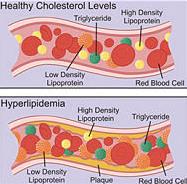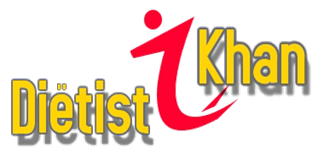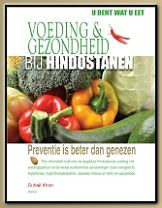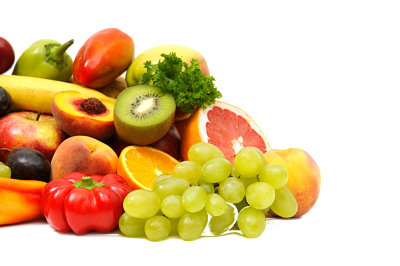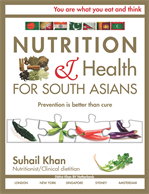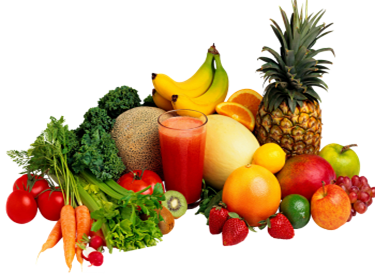
HYPERLIPIDEMIA
Cholesterol plays an important role in our body. The presence of cholesterol is important for the development of the brain and nerves, synthesizing vitamin D, creating sex and steroid hormones and producing bile. In our blood the cholesterol is transported by lipoproteins. We distinguish between good and bad cholesterol. The good cholesterol is HDL cholesterol (HDL High Density Lipoproteïn) and the bad cholesterol is LDL cholesterol (LDL Low Density Lipoproteïn). In the body LDL transports 80% of the blood cholesterol while HDL transports 20% of the blood cholesterol. The HDL is made up of lecithin (choline and inositol). LDL is the bad cholesterol, because it sticks to the artery walls thus causing them to become narrow. If the cholesterol is transported through the body by means of HDL, cholesterol to the liver is excreted through the faeces.
Cholesterol levels are measured by means of a blood test. The acceptable amount of cholesterol in the blood is 3-5 mmol/litre. It is normal to experience an occasional cholesterol fluctuation. Sometimes higher values may be measured. Due to these fluctuations 2 to 3 blood tests must be done, in alternating weeks.
The cholesterol level in the blood is expressed in milimol per liter (mmol/l). You need to be sober when the triglyceride levels is measured. Triglycerides are fats that are like cholesterol in the blood. The triglyceride levels should be as low as possible. The relationship between total cholesterol and HDL-cholesterol level in the blood is called the cholesterol ratio. In most people the ratio is 70% LDL cholesterol in serum and 20% HDL. The height of the cholesterol levels in the blood, however, is more dependent on the amount of saturated fats than the amount of cholesterol in the diet. The following table shows the cholesterol and triglycerides levels.
An overview of cholesterol levels in the blood.
Cholesterol levels are measured by means of a blood test. The acceptable amount of cholesterol in the blood is 3-5 mmol/litre. It is normal to experience an occasional cholesterol fluctuation. Sometimes higher values may be measured. Due to these fluctuations 2 to 3 blood tests must be done, in alternating weeks.
The cholesterol level in the blood is expressed in milimol per liter (mmol/l). You need to be sober when the triglyceride levels is measured. Triglycerides are fats that are like cholesterol in the blood. The triglyceride levels should be as low as possible. The relationship between total cholesterol and HDL-cholesterol level in the blood is called the cholesterol ratio. In most people the ratio is 70% LDL cholesterol in serum and 20% HDL. The height of the cholesterol levels in the blood, however, is more dependent on the amount of saturated fats than the amount of cholesterol in the diet. The following table shows the cholesterol and triglycerides levels.
An overview of cholesterol levels in the blood.
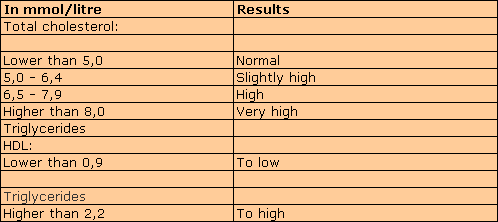
If the body contains too little cholesterol it may not function properly. However, an excess of cholesterol is also harmful. Most of the cholesterol is created in the liver (endogenous cholesterol) and a small part is from our food supply (exogenous cholesterol). Elevated cholesterol levels in itself has no effects. But years of too much cholesterol in your blood, can build up in the walls of your blood vessels. Your blood vessels can then become narrow and eventually seal up. Elevated cholesterol levels gives more risk of getting heart disease, such as a heart attack or a stroke. Other factors that increase your risk of heart disease are smoking, diabetes mellitus, hypertension (high blood pressure) and overweight. If you have more than one risk factor, the chance that you have a cardiovascular disease is greater. The cholesterol level increases when you eat a lot of saturated fat. Saturated fat is especially in cream, butter, whole milk products, full-fat cheese, fatty meats, biscuits, cakes and snacks. Some people have a predisposition for high cholesterol.
An overview of cholesterol levels in mg per serving.
An overview of cholesterol levels in mg per serving.
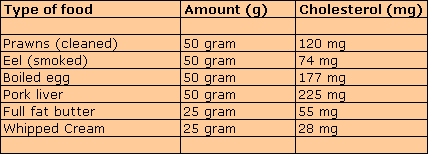
Source: Dutch food table 2001
Cholesterol levels increase by eating too much saturated fat, obesity, diabetes mellitus, eating a lot of cholesterol-rich products, hereditary predisposition, an under active thyroid and through the use of certain drugs. The body creates more cholesterol when there are a lot of saturated fats in the diet. When someone is overweight certain processes in the body change. This increases the cholesterol level. This is particularly the case in people with belly fat, the so called "apple shape". In this form, the total fat content and the LDL cholesterol levels are higher, while the HDL cholesterol level is lower. People with diabetes have a greater risk of heart disease than people without diabetes. This is because the blood vessels are already affected by the increased blood sugar. The influence of eating cholesterol rich foods is less significant than that of eating foods rich in saturated fats. However, it is not wise to consume to much cholesterol rich foods. In some families cholesterol is prevalent. This is hereditary hypercholesterolaemia. If this is the case, you should inform your doctor as cholesterol lowering medicine will be required, simply following a diet, will in this case not be insufficient. Fat in the diet is an important energy source for our body and some fats contain the essential vitamins A, D, E and K.
As you might have read, the blood cholesterol levels can be increased by eating too much saturated fat. The cholesterol level in the blood is reduced through the use of unsaturated fat. Unsaturated fats are better than saturated fats. Unsaturated fat is common in the following products: all kinds of oil (except palm and coconut oil), liquid margarine and low-fat margarine, spreads for bread with less than 17 grams saturated fat per 100 grams, nuts and fatty fish. Fish contains special unsaturated fats that very beneficial for cholesterol levels and especially for the heart.Therefore, it is good to eat as much unsaturated fats as possible and as little as possible saturated fats. Coffee beans contain a substance that can increase cholesterol levels. If you drink coffee that has been filtered, this substance remains behind in the filter. In this case there is nothing to worry about. However, espresso coffee, Turkish coffee, hot coffee, coffee made in a coffee pot or a can with a blister system, this substance remains in the coffee. That is why it is not wise to use these methods of making coffee daily. Instant coffees do not affect cholesterol levels.
Did you know that there are a lot of saturated fats in coffee creamer? In the current diet, an adult consumes about 250 mg of cholesterol per day. High cholesterol levels go by unnoticed. However unknown, the arteries are so constricted that the underlying organs get little or no blood. This can be a heart attack, stroke or other vascular disease. Healthy food, more exercise, not smoking and not drinking are very important. Often, medications are prescribed, but that is not the best way to lower your cholesterol. A healthy lifestyle and healthy diet are the most important.
Cholesterol levels increase by eating too much saturated fat, obesity, diabetes mellitus, eating a lot of cholesterol-rich products, hereditary predisposition, an under active thyroid and through the use of certain drugs. The body creates more cholesterol when there are a lot of saturated fats in the diet. When someone is overweight certain processes in the body change. This increases the cholesterol level. This is particularly the case in people with belly fat, the so called "apple shape". In this form, the total fat content and the LDL cholesterol levels are higher, while the HDL cholesterol level is lower. People with diabetes have a greater risk of heart disease than people without diabetes. This is because the blood vessels are already affected by the increased blood sugar. The influence of eating cholesterol rich foods is less significant than that of eating foods rich in saturated fats. However, it is not wise to consume to much cholesterol rich foods. In some families cholesterol is prevalent. This is hereditary hypercholesterolaemia. If this is the case, you should inform your doctor as cholesterol lowering medicine will be required, simply following a diet, will in this case not be insufficient. Fat in the diet is an important energy source for our body and some fats contain the essential vitamins A, D, E and K.
As you might have read, the blood cholesterol levels can be increased by eating too much saturated fat. The cholesterol level in the blood is reduced through the use of unsaturated fat. Unsaturated fats are better than saturated fats. Unsaturated fat is common in the following products: all kinds of oil (except palm and coconut oil), liquid margarine and low-fat margarine, spreads for bread with less than 17 grams saturated fat per 100 grams, nuts and fatty fish. Fish contains special unsaturated fats that very beneficial for cholesterol levels and especially for the heart.Therefore, it is good to eat as much unsaturated fats as possible and as little as possible saturated fats. Coffee beans contain a substance that can increase cholesterol levels. If you drink coffee that has been filtered, this substance remains behind in the filter. In this case there is nothing to worry about. However, espresso coffee, Turkish coffee, hot coffee, coffee made in a coffee pot or a can with a blister system, this substance remains in the coffee. That is why it is not wise to use these methods of making coffee daily. Instant coffees do not affect cholesterol levels.
Did you know that there are a lot of saturated fats in coffee creamer? In the current diet, an adult consumes about 250 mg of cholesterol per day. High cholesterol levels go by unnoticed. However unknown, the arteries are so constricted that the underlying organs get little or no blood. This can be a heart attack, stroke or other vascular disease. Healthy food, more exercise, not smoking and not drinking are very important. Often, medications are prescribed, but that is not the best way to lower your cholesterol. A healthy lifestyle and healthy diet are the most important.

Copyright © 2013 All rights reserved. Dietician/Nutritionist Khan - Sitemap
WebDen Website Design en Hosting - Website ontwerp door: www.designer-dragonfly.nl
WebDen Website Design en Hosting - Website ontwerp door: www.designer-dragonfly.nl


Cholesterol is a fatty substance that the body needs as building material for body cells and hormones. Cholesterol and fats are among a group of fatty substances called lipids. In the body cholesterol is made both by the body (endogenous cholesterol) and by the food supply (exogenous cholesterol). Endogenous cholesterol is mainly in the liver, adrenal glands, skin, intestinal tissue, aorta and testicles made from (excess) proteins, fats and carbohydrates.
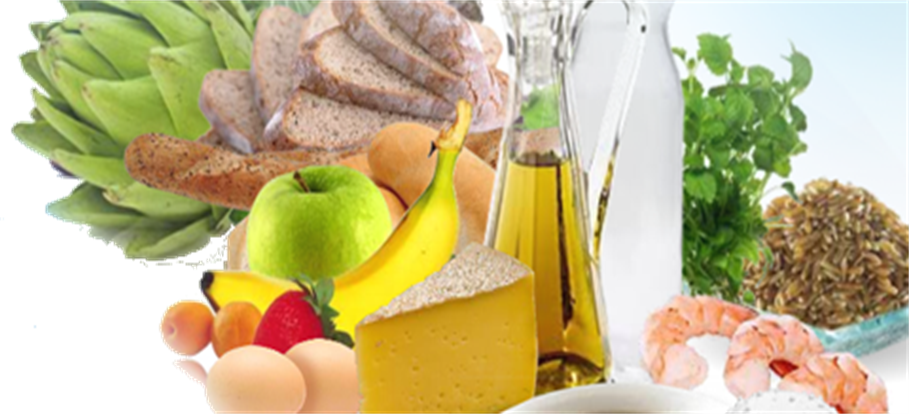
The liver of an adult produces about 1 gram of cholesterol daily, and we consume about 0.3 grams of cholesterol. The liver and other tissues produce cholesterol according to the need of the body. Of the exogenous cholesterol 50% is contained and the remaining part is excreted via the faeces . There are four types of lipoproteins: HDL (high density lipoprotein), LDL (low density lipoprotein), VLDL (very low density lipoproteine') and Chylomicrons. VLDL and Chylomicrons contain mostly triglycerides. LDL contain both triglycerides and cholesterol.





